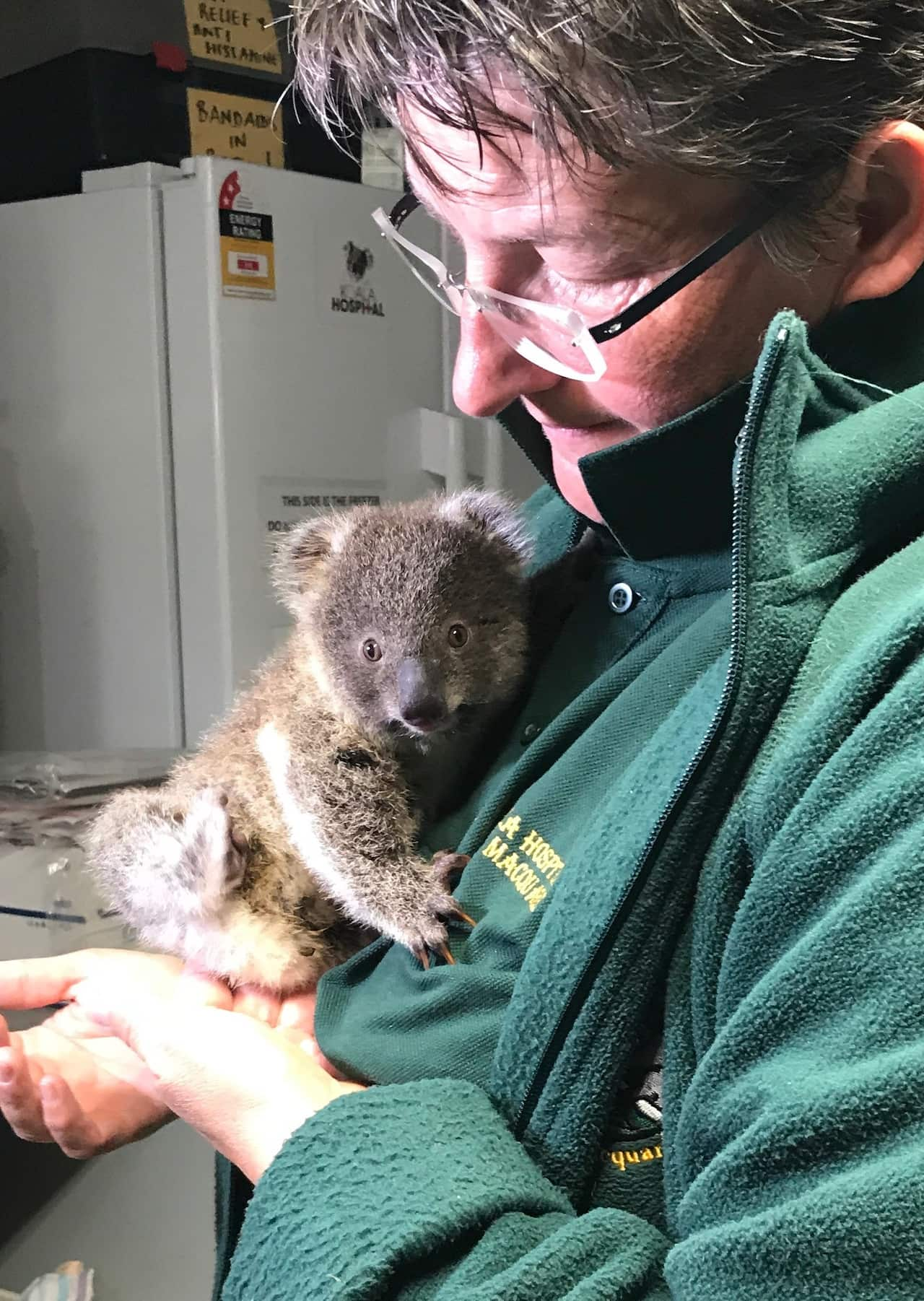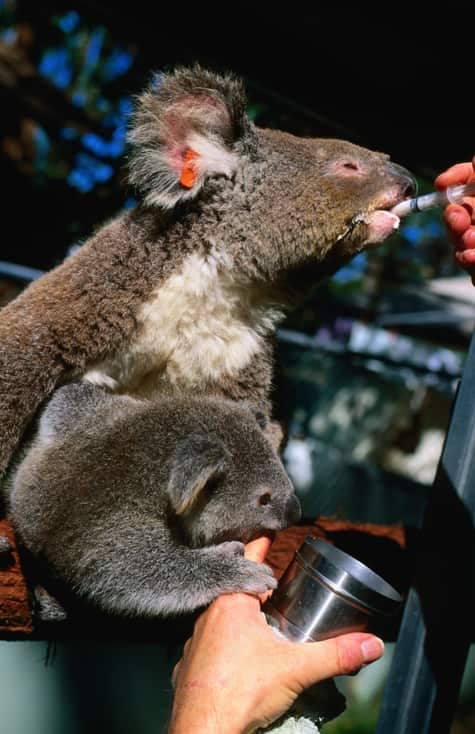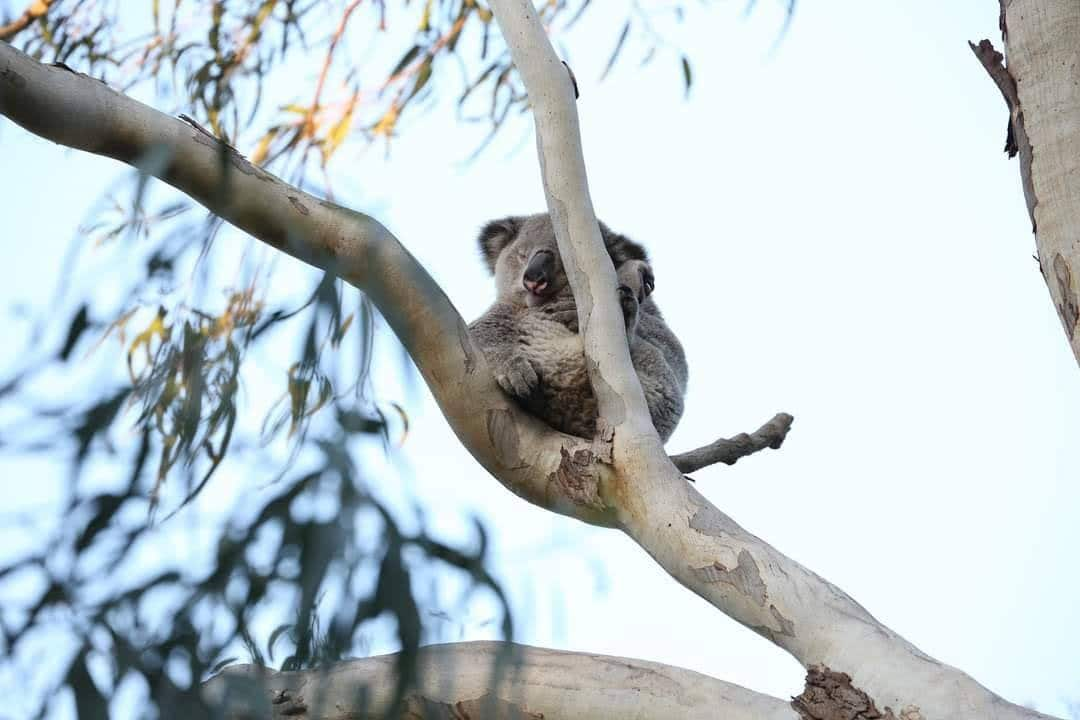Port Macquarie Koala Hospital is all set to start the world's first wild koala breeding program.
The initiative follows the loss of an estimated 8,000 treasured koalas across the country during the last summer's bushfires that burnt millions of hectares of land and killed over a billion animals.
In NSW alone, the koala population is reported to have declined by 71 per cent.
At the height of the bushfire tragedy, the small hospital cared for 70 injured animals, says Susanne Scheuter, a volunteer at the Port Macquarie Koala Hospital. She says many koalas had horrible burns, but others were simply there because the flames had completely destroyed their natural habitat.
She says many koalas had horrible burns, but others were simply there because the flames had completely destroyed their natural habitat.

Susanne Scheuter with a koala at the Port Macquarie Koala Hospital. Source: Suzanne Scheuter
“The animals had nowhere to go, and no food or water. They were doomed,” says the Swiss-born volunteer.
Also read
Fortunately, the Port Macquarie region received plenty of rainfall during January and February this year, helping the vegetation to recover.
“It was an unbelievable amount of water,” says Ms Scheuter. "It was like coming out of one extreme and going into another. But overall, it was a blessing.”
From a wash basket into the wild
Just as nature recovered and life started to get back to some sort of normal, the coronavirus pandemic dealt another blow.
First, the hospital was closed to the public for four months, then, a reduction in the numbers of volunteers meant that fewer animals could be cared for and a decision was taken to release 24 Koalas back into the wild.
Ms Scheuter says she feared that the koalas would still be too traumatised by their ordeal during the fires to thrive in the wild again. However, that was not the case.
“When you watch a koala, slowly climbing out of a wash basket which was his temporary home and onto a tree, they look happy to be back where they belong. I was relieved and happy, too.”

Koala and baby being fed at Koala Hospital. Source: Getty Images
The upside of COVID-19
Though COVID-19 has adversely affected the hospital, it had an upside for the koalas.
The lockdown reduced vehicular traffic on the roads to a trickle which served the koalas well because it coincided with the onset of the breeding season.
On heat, male Koalas are much more mobile than during the rest of the year, crossing roads without looking in search of female company.
“There were fortunately only very few injured animals during that time,” Ms Scheuter says.
She adds that female Koalas are choosy breeders who have at the most only one offspring each year.
“The Koala population will recover only slowly,” she says. “That’s why we need the wild koala breeding program.” It has to be in the wild because Koalas in a captive koala breeding program cannot legally be released into the wild.
It has to be in the wild because Koalas in a captive koala breeding program cannot legally be released into the wild.

Source: Suzanne Scheuter
Three breeding sites are planned in a step towards ensuring the survival of healthy wild koalas. The aim is to create the world's best practice wild koala breeding program which other organisations can use as a blueprint.
The volunteer-run hospital is also awaiting redevelopment. The project planning is being finalised, and the koala hospital is working towards engaging an architect. The redevelopment will be funded through a $5 million grant from the state government and a $1.25 million contribution from the koala hospital.
The transformation will provide a raised walkway through the trees, new rehabilitation and permanent resident koala yards, training, research and education spaces, a shop, koala museum and theatrette. There will also be interpretive signs, new clinic, administration area, Indigenous storytelling space and educational nature walks.
Meanwhile, Suzanne Scheuter says, she is optimistic that the koala parents will raise their young well.
